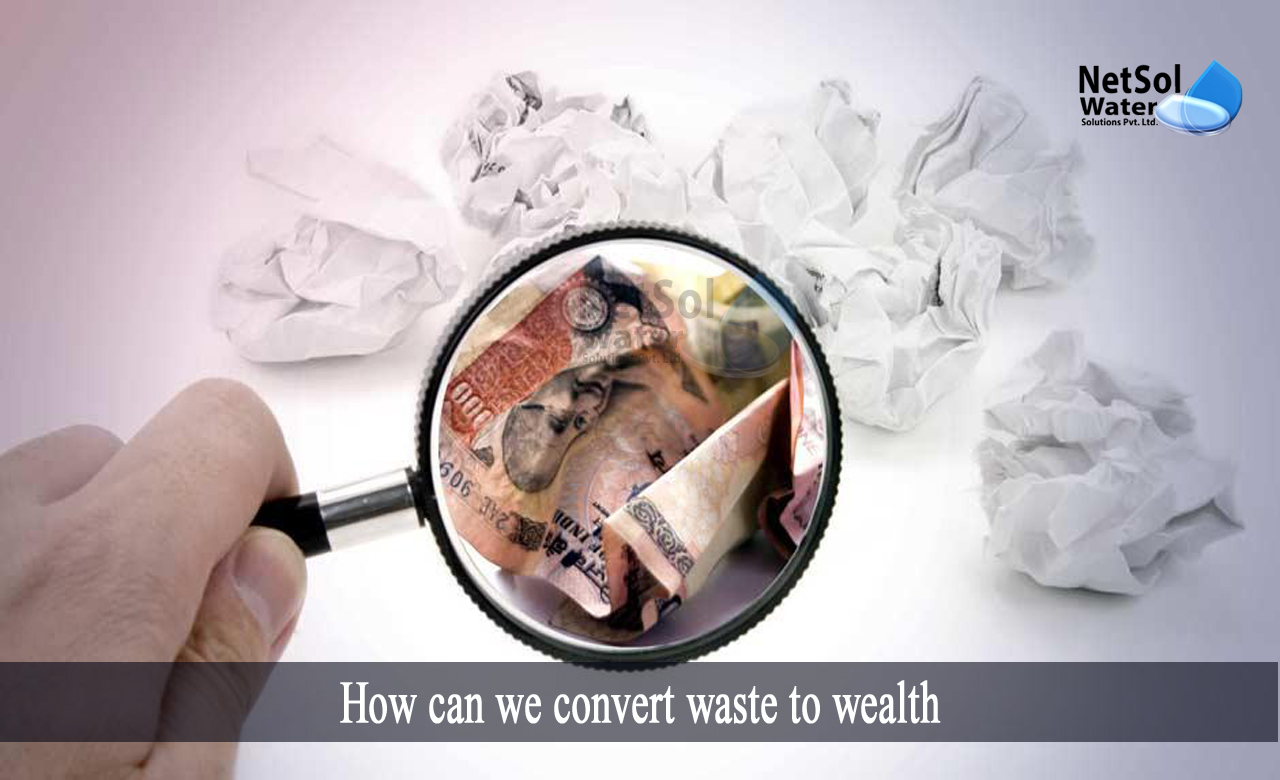Introduction
A rapidly developing country like India produces a variety of urban and industrial waste. Municipal waste, construction and demolition waste, plastic packaging waste, e-waste, industrial hazardous and non-hazardous waste, and biological waste, are among the waste streams. These waste streams present a unique management challenge.
But, is it possible to convert this waste into wealth?
Government initiatives to address the waste problem
To address solid waste issues, the Ministry of Environment, Forests, and Climate Change (MoEFCC), issued a set of six rules in 2016. The rules emphasize extended producer responsibility (EPR), which holds manufacturers of various products accountable, for ensuring that waste generated by their products is collected and processed responsibly.
How can we convert waste to wealth?
Though, several mandates to implement Solid Waste Management Rules have improved, cities must nevertheless ensure the creation of scientific waste disposal sites, in the case of municipal solid waste, particularly for collection, processing, and transport.
Furthermore, the rules demand the development of a national waste management strategy, followed by the development of relevant state level policies and city level action plans, to implement the national policy.
Data collection
A suitable data collection format should include information such as daily waste generation and collection, waste processing and recycling, waste diverted from landfills, and information collected should flow from, sanitary inspectors to higher officials via a suitably designed Management Information System (MIS).
Likewise, it is predicted that 80% of plastics introduced annually will end up as waste. Electronics use is no different, with e-waste generation calculated based on the number of electronic devices sold and waste generation estimated based on their usage. As a result, it is critical that real-time waste creation data for each of the urban waste streams be collected on a frequent basis.
This is significant because the infrastructure for collection and processing must be designed, based on the current and future capture rates for these waste streams. Packaging plastics account for around 43% of total plastic demand in India, with an annual recycling rate of approximately 60% of plastic waste collected.
Major issue in data collection
The issue is the uncollected plastic waste, the majority of which is single-use, low-value plastics that are unappealing to plastic waste collectors. These eventually end up in landfills, streams and rivers, and eventually the coastal seas of India's vast coastline, contributing to marine litter.
Possible solution
One solution is to incentivize the collection of single-use, low-value plastics by waste collection, in order to improve collection rates and ensure that, if these plastics cannot be recycled, they are either processed by waste to energy, including pyrolysis, or co-processed as alternate fuel in cement kilns.
This measure will not only have a national impact, but will also have an international impact on regulators' efforts, to address the issue of marine litter, to which plastics are important contributors.
Conclusion
The urge to reduce waste has resulted in several novel solutions, such as waste upcycling. Upcycling, also known as creative reuse, is the process of changing waste materials, by-products, and undesired items, into new materials or products of higher quality and environmental value, while keeping the original material's properties.
This promotes a circular economy by reusing wasted materials, minimizing the need for virgin resources. Most of the time, it does not necessitate large financial investments and can be accomplished by creative thinking, smart design, and reorganizing manufacturing. Upcycling minimizes carbon emissions and helps save energy and water, in addition to keeping waste out of landfills and balancing demand for virgin materials.
How do we assist?
Netsol Water provides cutting-edge water and wastewater treatment solutions, such as water treatment plants, wastewater treatment plants, Commercial RO Plants, Industrial RO Plants, solid waste management solutions, and much more, to turn waste into wealth.
Netsol Water is Greater Noida-based leading water & wastewater treatment plant manufacturer. We are industry's most demanding company based on client review and work quality. We are known as best commercial RO plant manufacturers, industrial RO plant manufacturer, sewage treatment plant manufacturer, Water Softener Plant Manufacturers and effluent treatment plant manufacturers. Apart from this 24x7 customer support is our USP. Call on +91-9650608473, or write us at enquiry@netsolwater.com for any support, inquiry or product-purchase related query.



